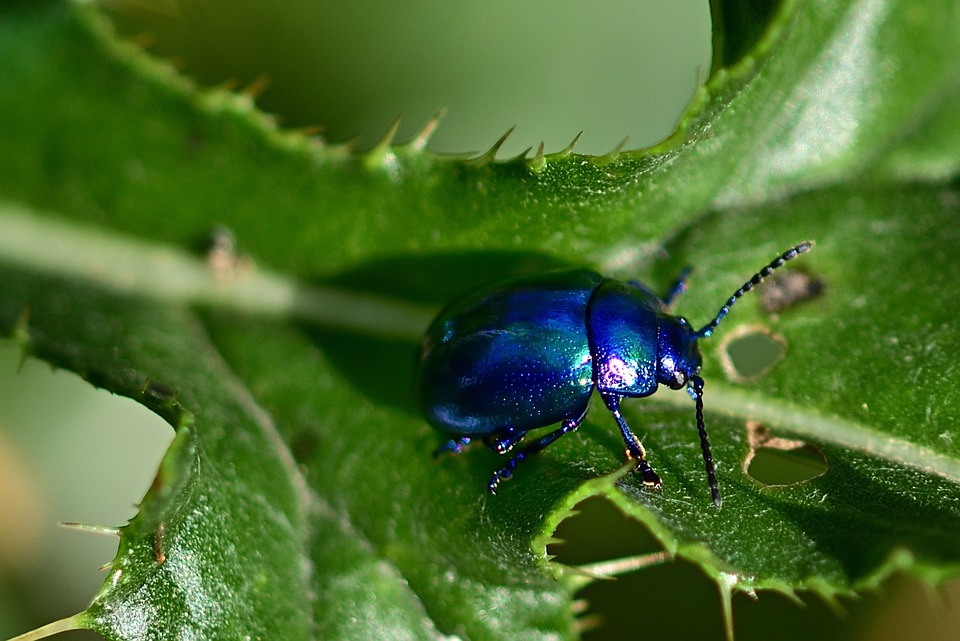As the warm weather rolls in, so do pesky insects eager to ruin our outdoor experiences. Whether you’re planning a family picnic, a backyard barbecue, or simply a leisurely stroll through the park, the presence of mosquitoes, ticks, and other insects can quickly turn a fun day into an itchy disaster. Traditionally, many have relied on commercial insect repellents that are often laden with synthetic chemicals. However, a growing awareness of health and environmental concerns has led many to seek out chemical-free alternatives. Let’s explore the world of natural insect repellents and how they can help you go green while keeping those bugs at bay.
Why Choose Chemical-Free Insect Repellents?
-
Health Concerns: Conventional insect repellents, such as those containing DEET, have been associated with skin irritations and potential neurological effects with prolonged exposure. Natural insect repellents usually consist of plant-based ingredients that are gentler on the skin and less toxic to human health.
-
Environmental Impact: The chemicals in commercial insect repellents can have harmful effects on the environment. They can contaminate water supplies and are toxic to beneficial insects like bees and butterflies. By opting for natural solutions, you not only protect your health but also contribute to ecological preservation.
- Sustainability: Many natural insect repellents are derived from sustainably sourced, organic ingredients. This makes them not only better for your skin but also for the planet, supporting ecosystems and reducing the carbon footprint associated with chemical manufacturing.
Popular Natural Ingredients
Numerous plant-based ingredients have proven effective in repelling insects. Here are some of the most popular ones:
1. Essential Oils
Essential oils derived from various plants are powerful allies in the fight against insects. Some of the most effective include:
- Citronella: Often used in candles and sprays, citronella oil has a strong scent that masks odors that attract insects.
- Lavender: Its calming fragrance is delightful for humans but deters mosquitoes and moths.
- Eucalyptus: Particularly lemon eucalyptus oil has been found to be as effective as DEET in repelling mosquitoes.
- Peppermint: This oil not only smells great but is also effective against ants and spiders.
2. Vinegar
Vinegar is a versatile household item that can also repel insects. Mix equal parts water and vinegar in a spray bottle and apply it to your skin and clothing. The strong scent is off-putting to insects.
3. Garlic
Garlic isn’t just a culinary favorite; it’s also a natural insect repellent. Consuming garlic or applying garlic oil to your skin can help keep bugs away due to its potent scent.
4. Soybean Oil
Soybean oil is another natural alternative being used in various commercial products. It’s been found to be effective against mosquitoes and has a softer impact on the skin compared to harsher chemicals.
DIY Natural Insect Repellent Recipes
Creating your own chemical-free insect repellent is an easy and cost-effective way to go green. Here are a couple of simple recipes to try:
1. Essential Oil Spray
- Ingredients:
- 10-15 drops of essential oil (such as citronella, eucalyptus, or lavender)
- 2 oz of witch hazel or vodka
- 2 oz of distilled water
- Instructions:
- In a spray bottle, combine the essential oil, witch hazel or vodka, and distilled water.
- Shake well before each use and spray on exposed skin and clothing.
2. Vinegar and Water Spray
- Ingredients:
- 1 cup of water
- 1 cup of white vinegar or apple cider vinegar
- Instructions:
- Combine the vinegar and water in a spray bottle.
- Spray on areas where insects are a nuisance, avoiding sensitive areas like eyes and mouth.
Tips for Effective Use
- Reapply: Natural repellents may not last as long as chemical ones, so reapply every two hours or after swimming or sweating.
- Test for Sensitivity: Always conduct a patch test before applying any new product, even natural ones, to ensure you don’t have an adverse reaction.
- Combine Methods: Use natural repellents in conjunction with other methods, like wearing long sleeves, using mosquito nets, and eliminating standing water around your home.
Conclusion
Going green with chemical-free insect repellents is not only beneficial for your health but also for the environment. As consumers increasingly demand cleaner, safer alternatives, the market for natural insect repellents continues to grow, offering solutions that are effective and eco-friendly. This summer, say goodbye to harsh chemicals and embrace the refreshing scents and protective benefits of nature’s own remedies. With the right preparation and ingredients, you can keep those pesky bugs at bay while enjoying the great outdoors—naturally!
